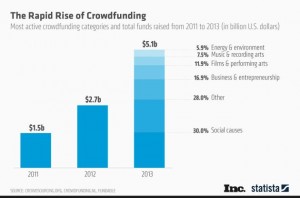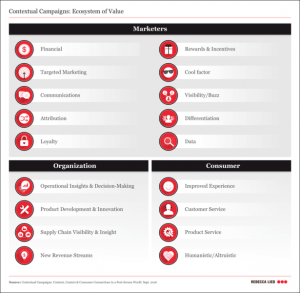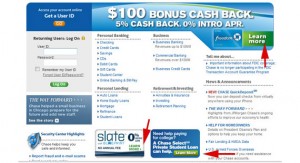
On a recent trip to San Francisco I met up with a long-time friend for dinner. Matthew had just completed his courses to become a Certified Personal Trainer and is launching his practice in a relatively crowded market. Over the course of dinner he asked for my thoughts on how he could acquire new clients.
While every situation is different, there are some general strategies that can help differentiate a business from the competition. Below are just a few of the ideas I shared with him.
Be Different
In my friend’s case, most of the competitors marketing to his target demographic were utilizing similar tactics and messaging. Facebook and in-app advertising, local print ads, and neighborhood fliers all focused primarily on price. Leading with hourly rates, first-session discounts and multi-session promotional offers, the competition had created an environment where a focus on expertise and results could differentiate his practice.
I encouraged Matthew to avoid leading with price, and instead to focus on how his background and experience would translate to results for his clients. Instead of advertising his hourly rates, I suggested he leverage his knowledge and expertise to help people understand how being one of his clients would be different. In return, he should collect lead information when possible so he could market more directly.
Tell a Story
10 years ago, Matthew was 135 pounds and had never lifted a barbell. Today he weighs in at 260 pounds, squats 525 pounds, and can bench press 405 lbs. He’s massive, and so is the value of the story of how he changed his body.
Instead of simply offering his services as a personal trainer, I advised him to focus on that story and show people what he’d achieved; not merely to inspire them, but to demonstrate the results they could hope to achieve. In the words of Harvard marketing professor Theodore Levitt: “People don’t want to buy a quarter-inch drill. They want a quarter-inch hole.” Similarly, people don’t want personal training. Many of them don’t even want to spend a great deal of time in the gym (though that will need to change if they truly want to achieve significant results). What they do want, and what they will pay for, is the body that my friend has and that they want; and who better to trust to help them get that body than someone who has already built that body from scratch?
Don’t Sell, Nurture
The same passion that enabled Matthew to change his body drove him to learn a tremendous amount about human physiology and the chemistry that enables muscle growth. In 2013, in response to the numerous questions he was getting from his friends on the topic, he posted a Facebook Note that captured the full value of all of that acquired knowledge.
He’d wisely deleted that note even before we met for dinner; but I encouraged him to leverage that content for lead generation and nurturing going forward. Instead of one large Note, each of the topics could be developed as an individual article, posted in blog format to drive traffic to his site.
Followers to his blog would thus be nurtured over time, and in exchange for his knowledge he could capture valuable information (email addresses, location, and fitness goals), for example, which could be used to target them with appropriate offers and marketing in the future.
These same techniques can work for any business attempting to compete in a crowded marketplace. Launching a “me too!” advertising campaign will limit you, ultimately forcing you to compete the same way Matthew’s competitors do: throwing out discount offers and bringing in non-loyal customers who only care about who has the lowest price today. Focus instead on educating people and demonstrating the value you offer, and break through the promotional clutter for long-term engagement with prospects, and ultimately clients.
(224)
Report Post







